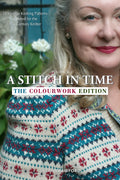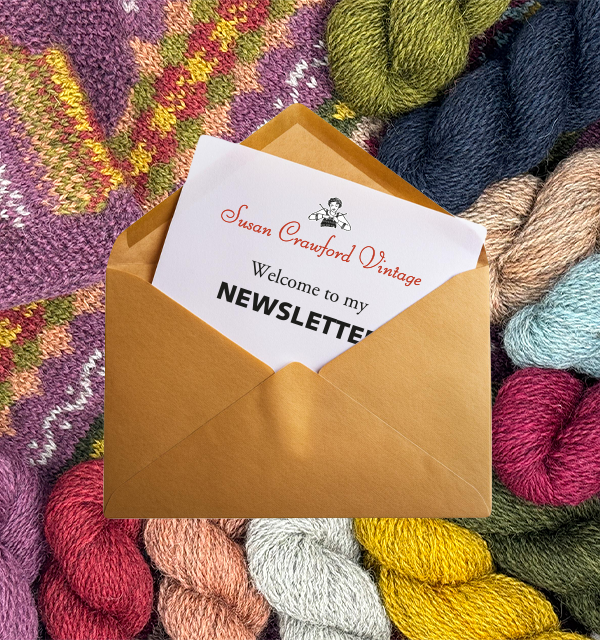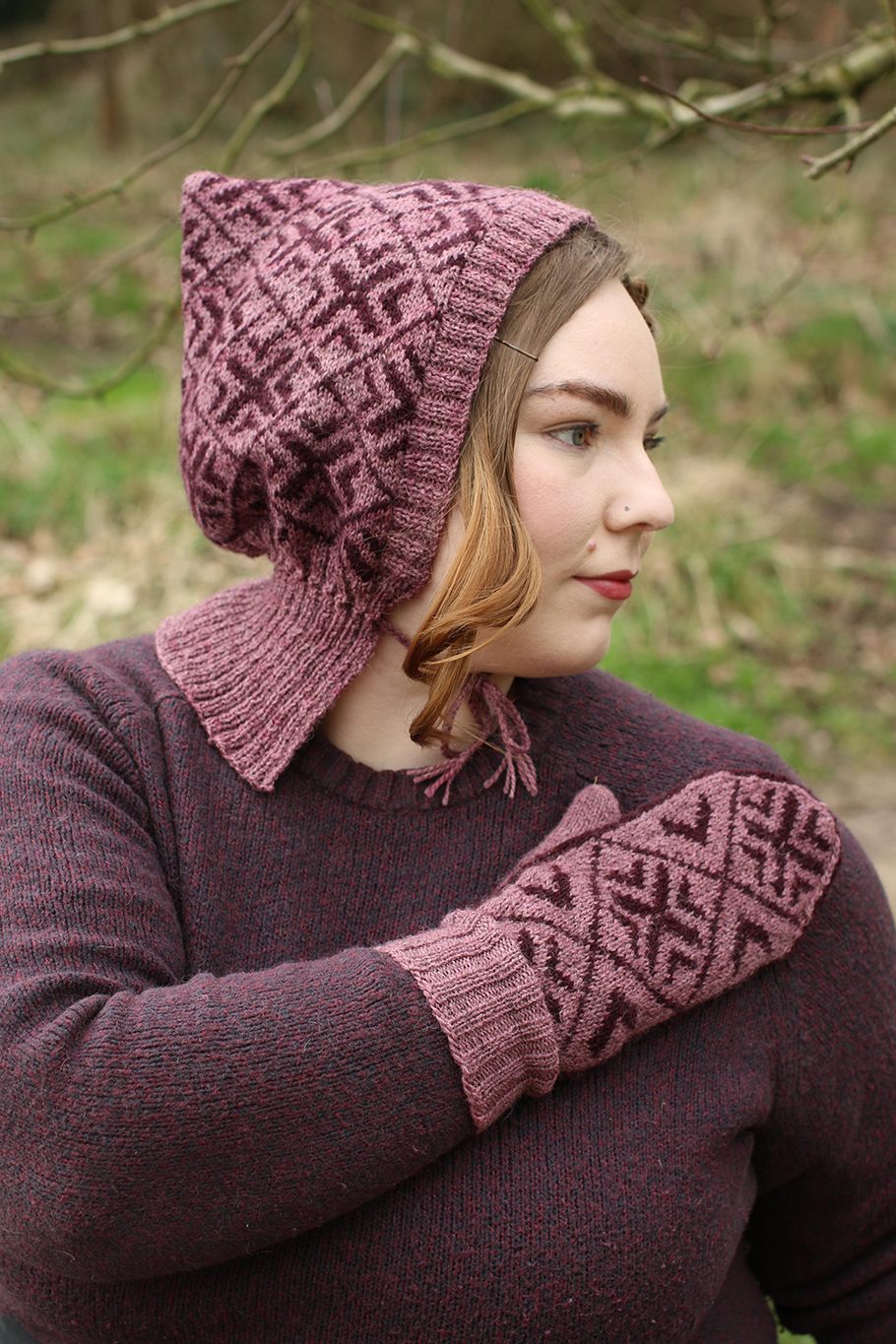
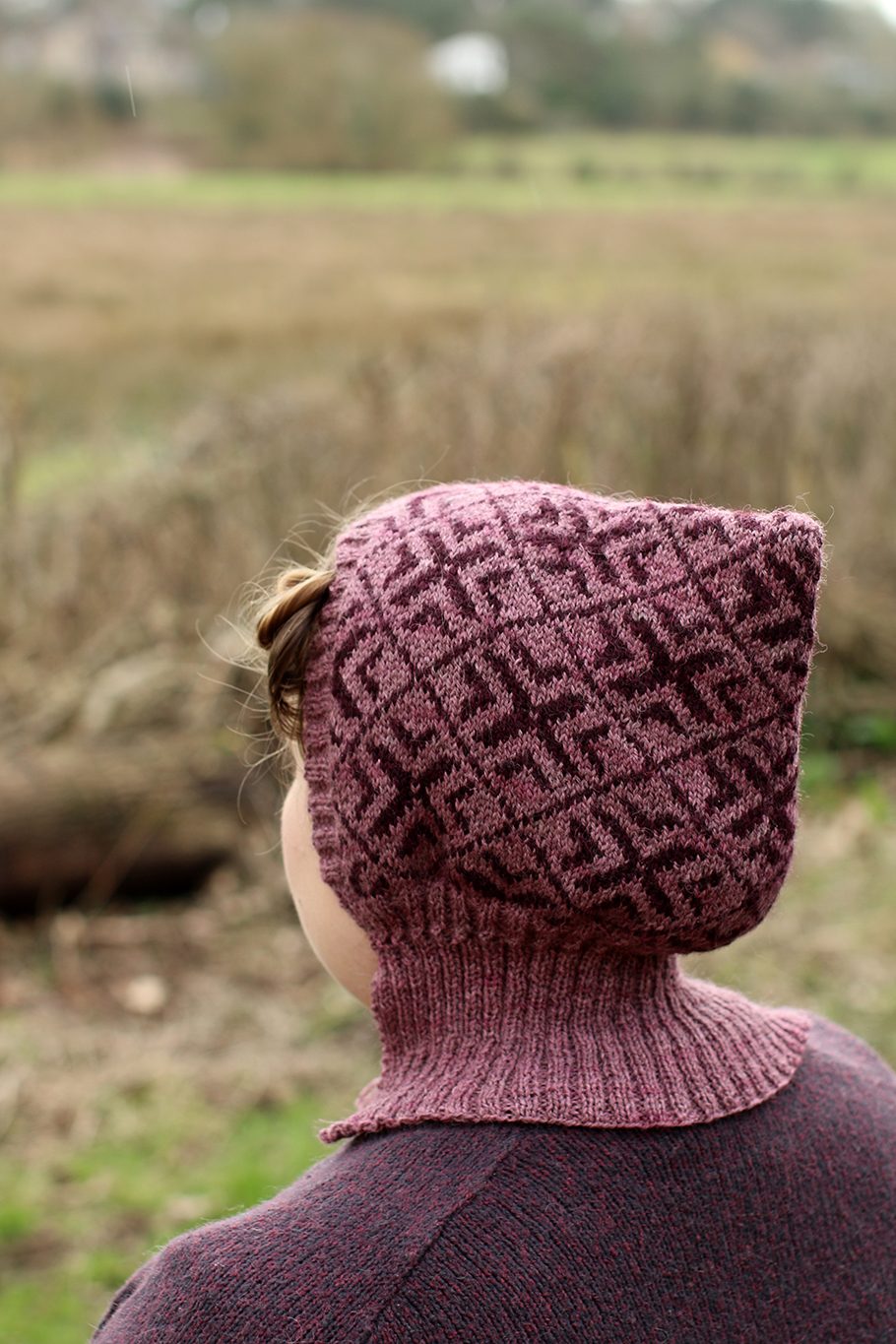
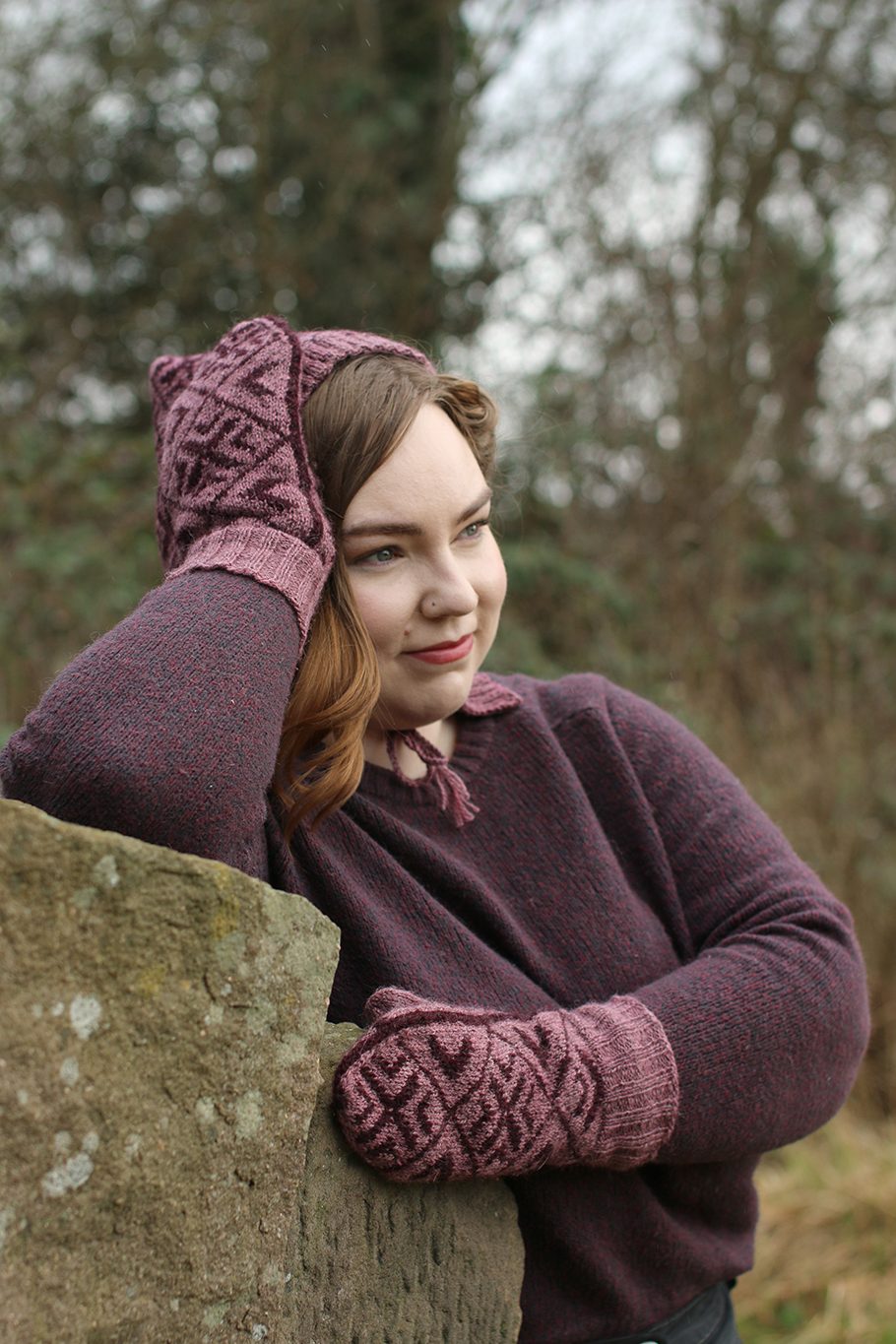
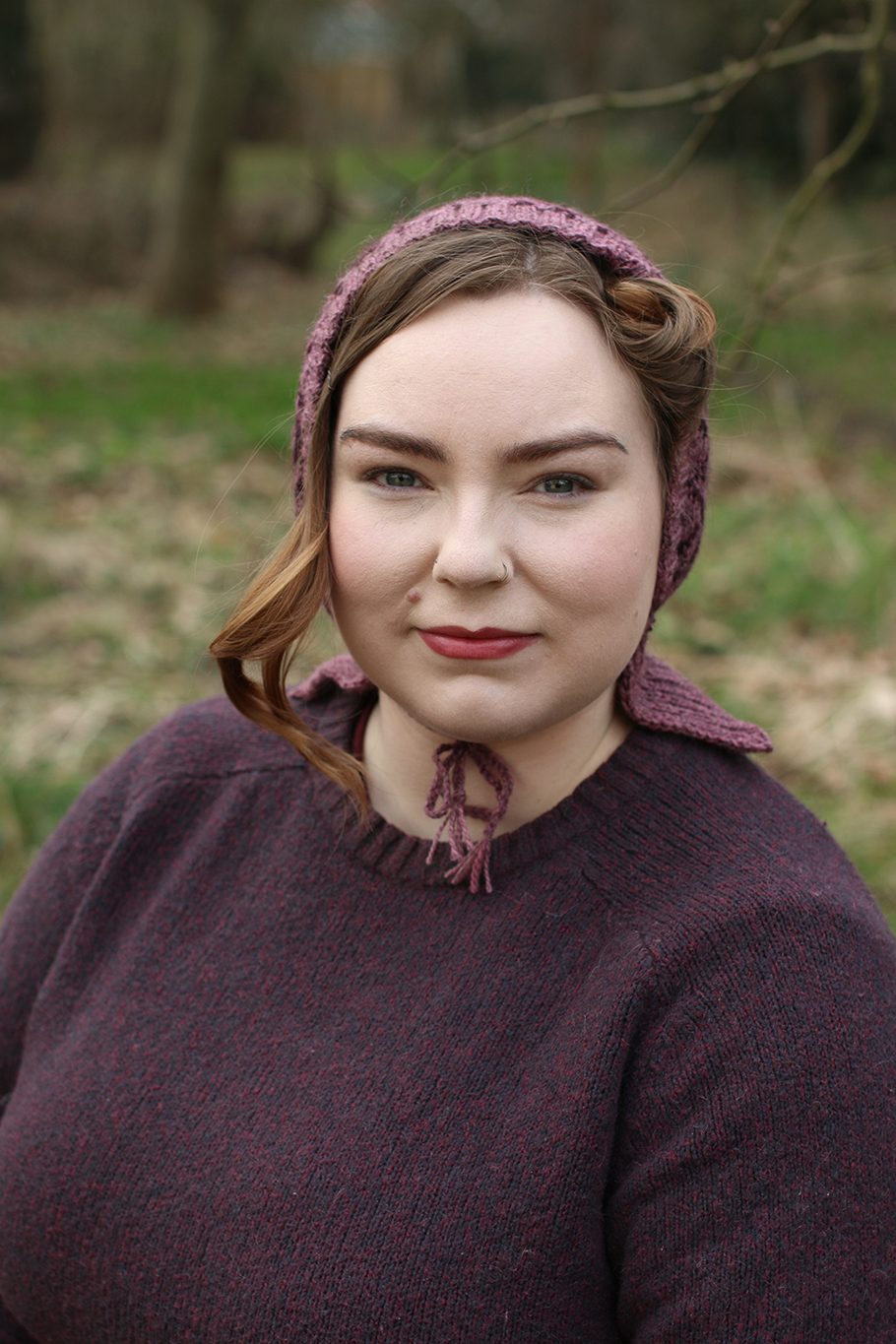
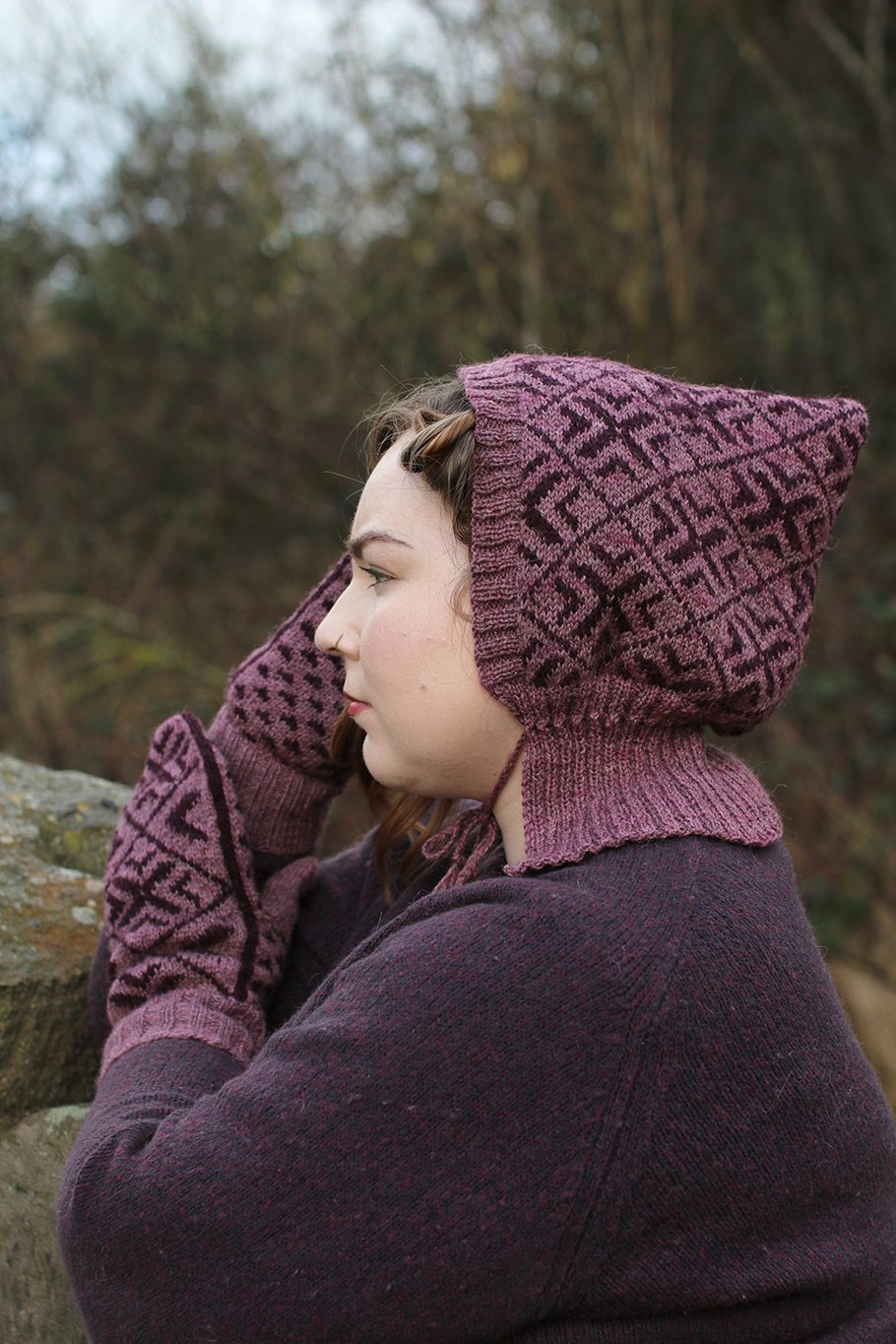
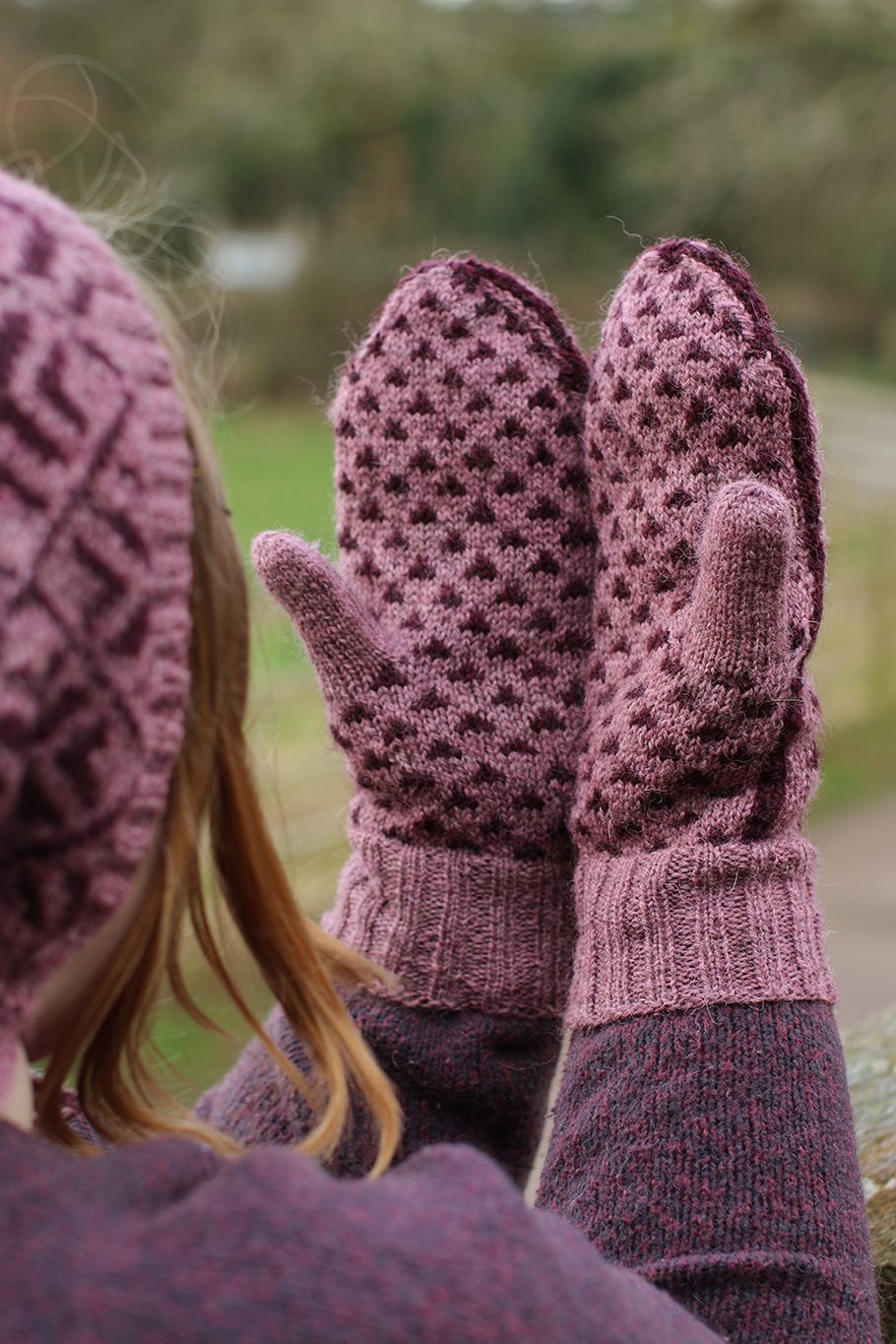
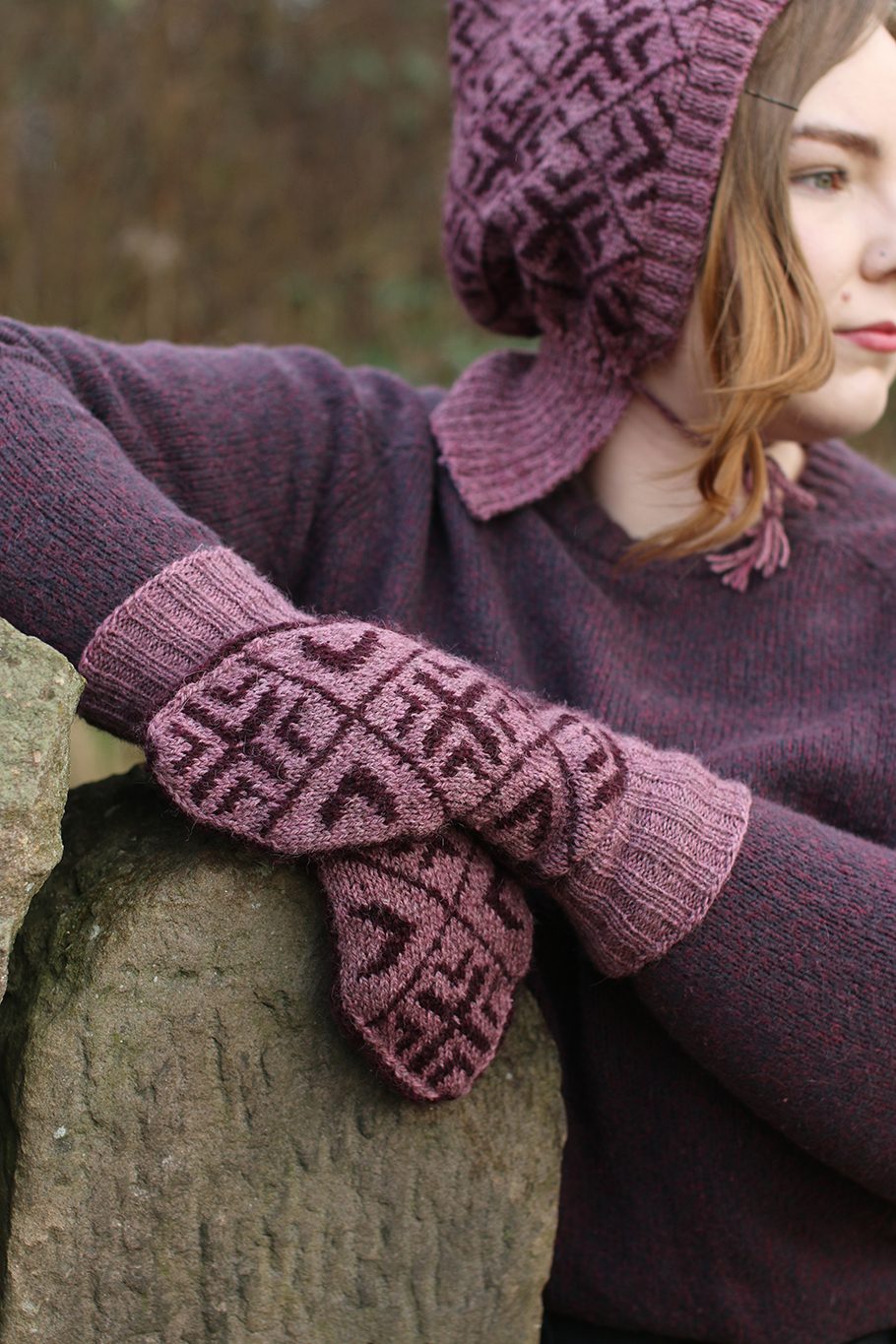
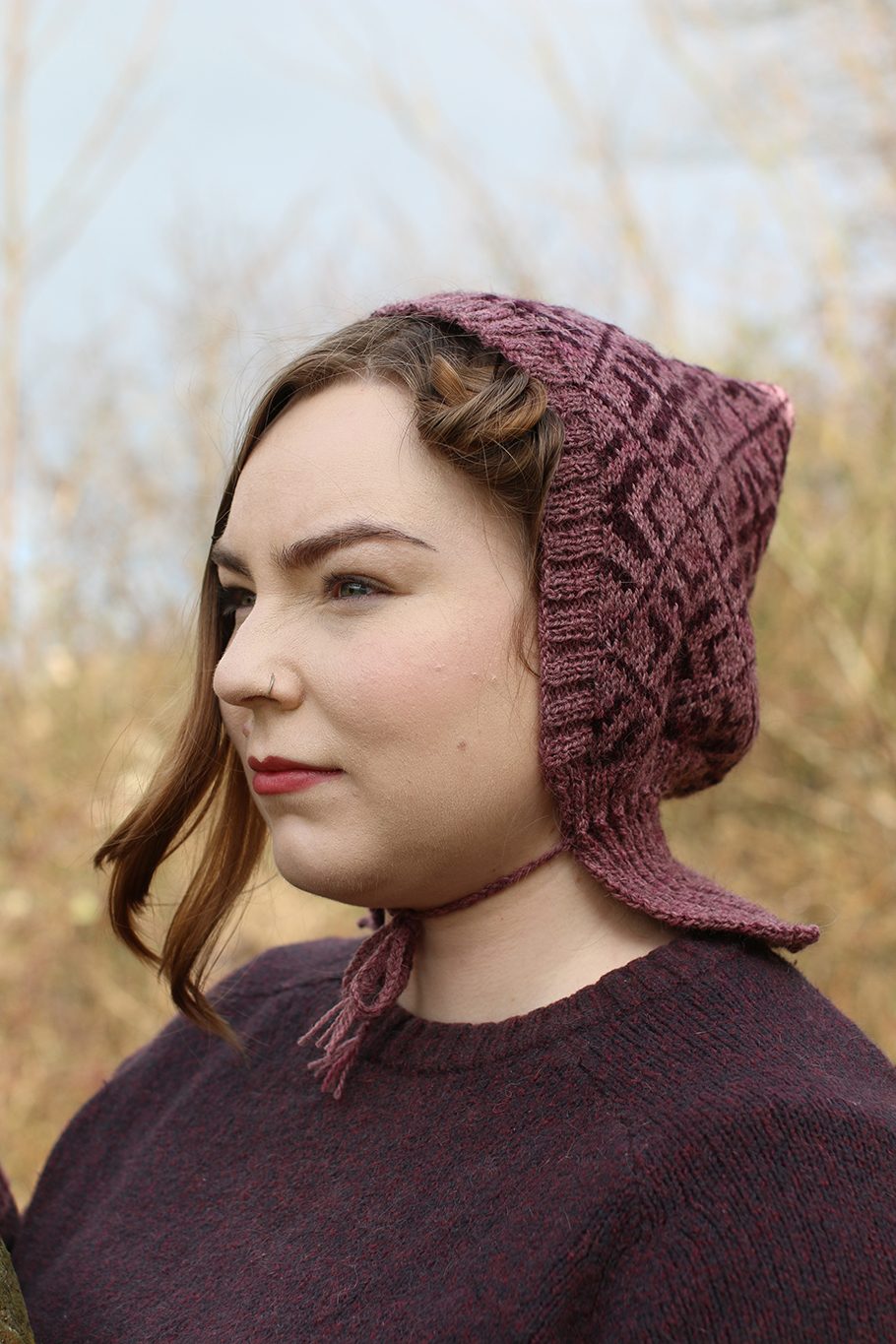
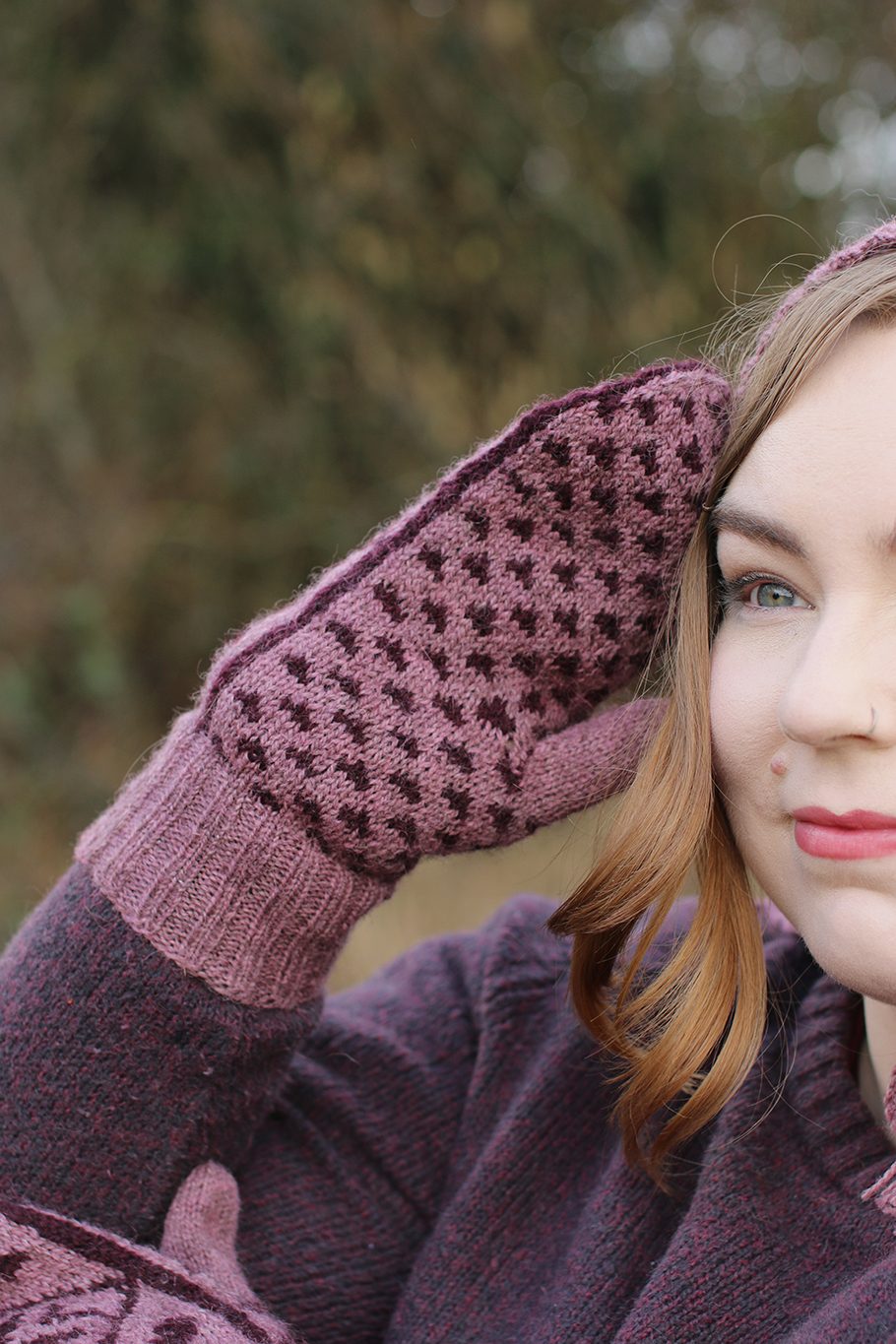
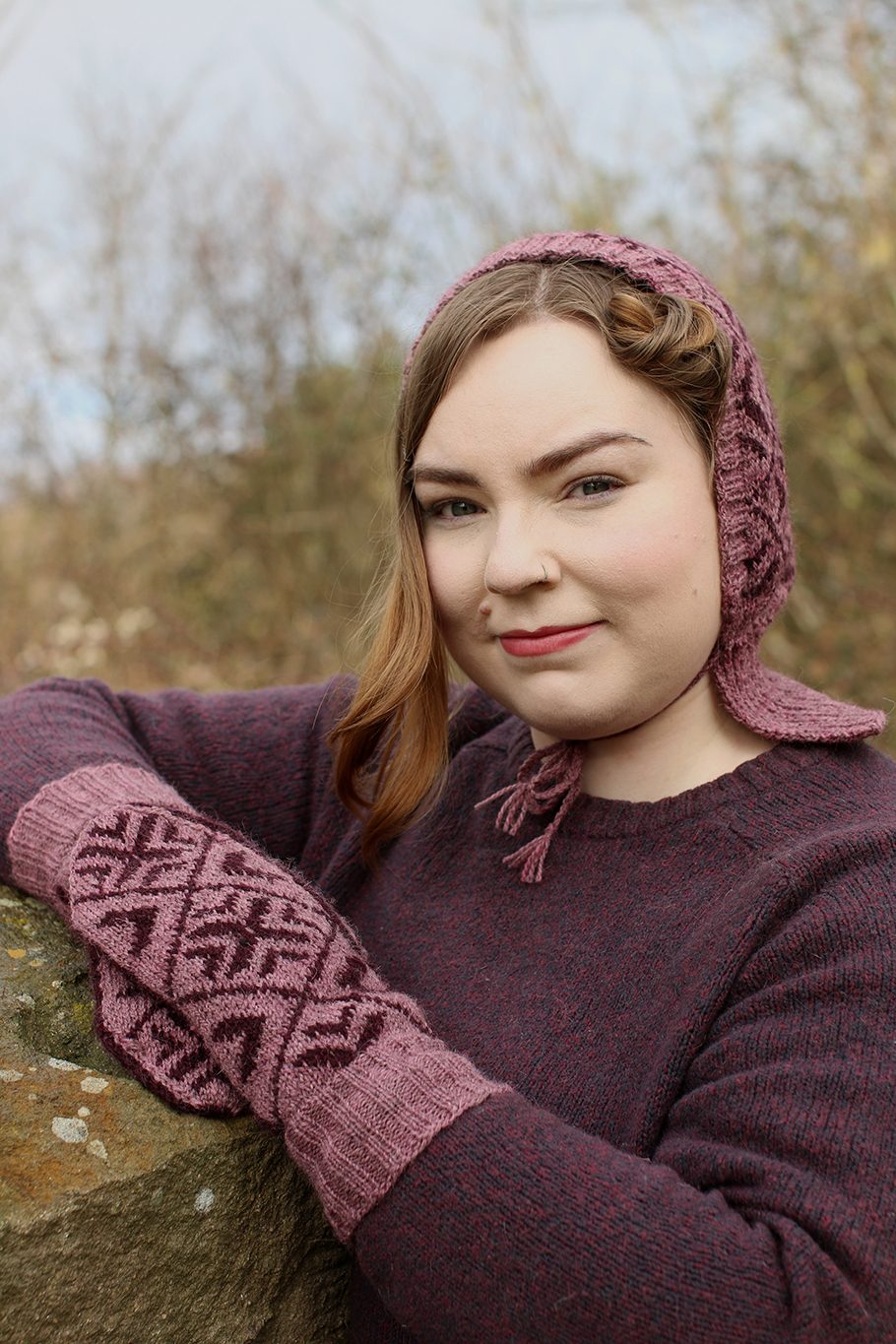
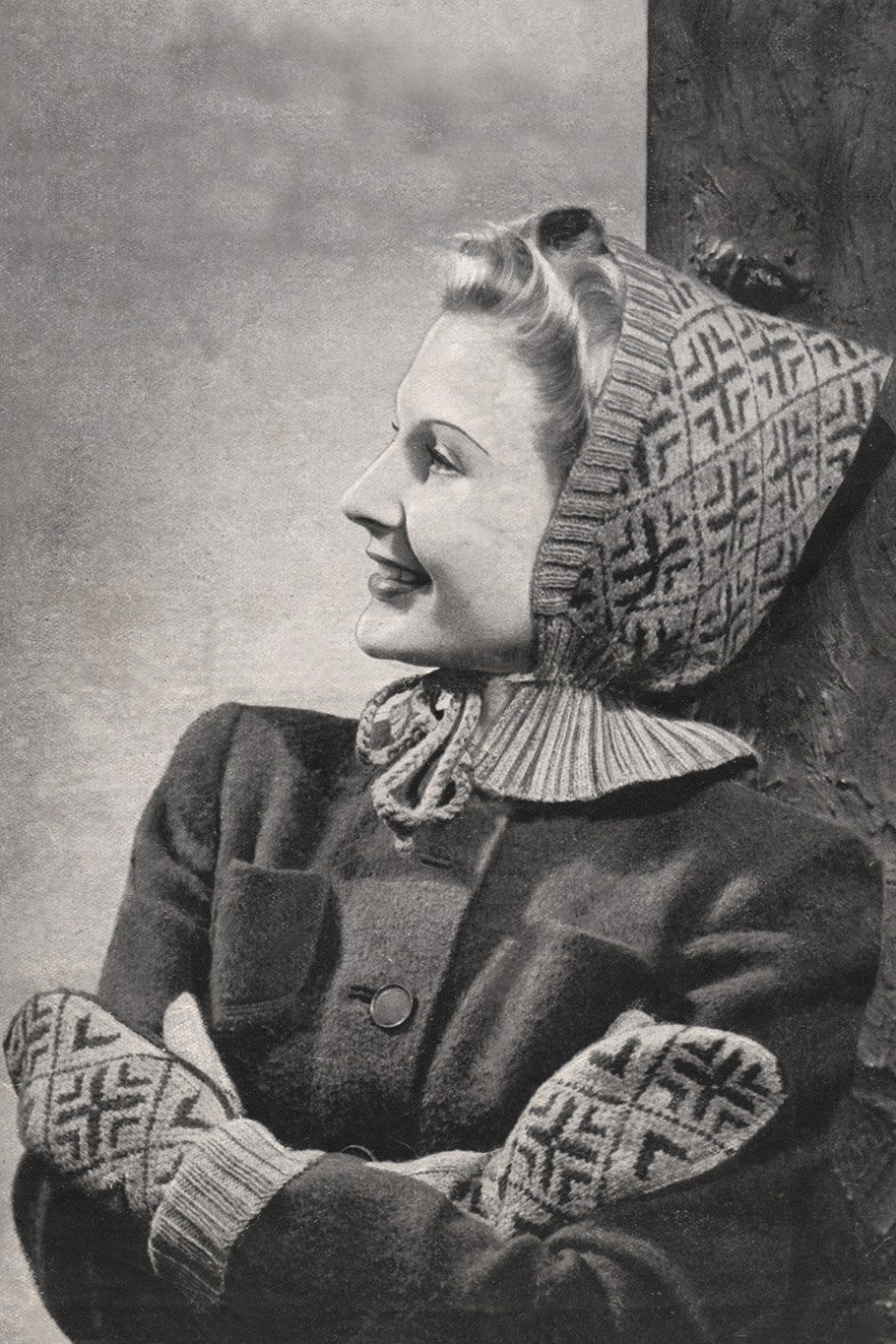
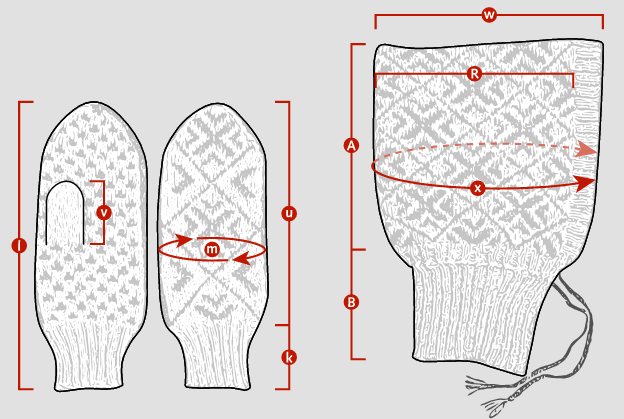
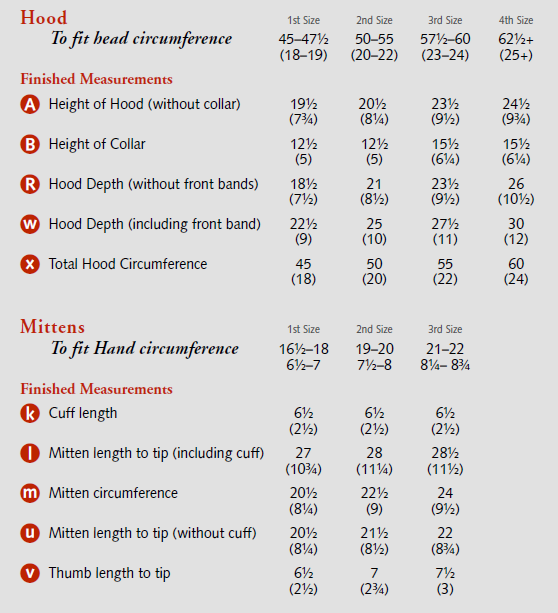
Copley
This pattern is currently only available as part of
A Stitch In Time Volume 3 - The Colourwork Edition
which can be purchased here
- This pattern is currently only available as part of A Stitch in Time Volume 3, the colourwork edition which can be ordered by following the link above
Copley is an eye-catching Fair Isle pixie hood and mittens design knitted in fingering weight yarn in two strongly contrasting shades. This matching Fair Isle hood and mitten set was first published in the UK in the 1940s and somewhat unusually for this period, includes charts for both the hood and the mittens. The Fair Isle motif featured on both is simple and bold and is used to great effect in this design using two strongly contrasting colours.
The original version of the hood is knitted flat in a long strip with wrong side rows purled. The ribbed front band is then picked up and knitted along one long side edge before the hood is folded in half and the back seam sewn up. The collar or neck band is then picked up along the cast-on edge of the hood and knitted downwards with eyelets worked to enable a plaited tie to be thread through.
In the updated version of Copley, I have included both a flat version of the pattern and also separate instructions on how to knit the hood in the round, so that every round is worked by knitting on the right side only. A steek has been added to create a tube for knitting in this manner. Once the steek is cut open the hood is then constructed in the same manner as the flat version, ensuring a seam is created at the centre back of the hood which in turn, produces the neat point of the pixie hood.
I have added three additional sizes to the hood pattern to guarantee a good fitting hood.
Pixie hoods began to become popular in the 1930s but it was the 1940s when they truly reached the peak of their popularity – easy to knit, exceptionally warm and unlikely to fall or get lost unlike a traditional hat, they were the ultimate in practical headwear for both adults and children alike. The shape and fit of the pixie hood also ideally suited the hair styles of the period; with waves or rolls worn high on the hair line with the pixie hood sitting neatly behind. As hair styles and fashions changed in the 1950s, the popularity of the pixie hood began to wane but it remains forever desirable for vintage fans.
The matching mittens are worked in the round in both the original and updated versions of the pattern. The same bold, graphic pattern is worked on the back of the mittens with a complementary peerie motif on the palm of the mittens. A solid line of dark stitches are worked around the outer edges of the mittens and thumbs for a bold contrast. To achieve this, pairs of decrease stitches are worked within these border stitches thus maintaining the continuity of the stripes. Deep 2 × 2 ribbed cuffs are worked and in the original pattern photo are shown placed over the sleeves of the model's coat ensuring draft free arms. This practical approach is something we probably wouldn't think of today but made a great deal of sense particularly during wartime.
I have used Byre for the Copley hood and mitten set. This is a fingering weight yarn so slightly thicker than the original 3 ply yarn recommended in the pattern, but still fine enough to achieve a firm 30 sts to 10cm (4in) needed for the hood and mittens. Byre is a rustic yarn which I feel creates a similar look to that shown in the photos of the original pieces and is both warm and robust enough for these cosy outdoor pieces. I have used Thistle Head as the background shade, a warm lilac shade, and Berry Picking for the patterning – a deep, warm purple but any two strongly contrasting shades would work equally well. Excelana North fingering weight would also make an excellent alternative for those wanting a slightly softer fabric and I have given yarn requirements for both in the pattern information.
- Yarn
Susan crawford Byre, fingering weight, 100% British wool,
a unique blend of Jacobs, white Shetland a)nd black Shetland fleeces (400m / 436yds per 100g skein)1 (2, 2, 2) skein, shade Thistle Head - yarn A
1 (1, 1, 1) skein, shade Berry Picking - yarn BGauge
Hood
1st and 3rd Size
30 sts and 36 rows or rounds = 10cm (4in) over stranded colourwork pattern worked flat or in the round, after blocking. We obtained gauge using 3mm needles.2nd and 4th Size
27 sts and 34 rows or rounds = 10cm (4in) over stranded colourwork pattern worked flat or in the round, after blocking. We obtained gauge using 3.25mm needles.Mittens
1st Size
30 sts and 34 rounds = 10cm (4in) over stranded colourwork pattern worked in the round, after blocking. We obtained gauge using 3mm needles.2nd and 3rd Size
27½ sts and 32½ rounds = 10cm (4in) over stranded colourwork pattern worked in the round, after blocking. We obtained gauge using 3.25mm needles.If necessary use an alternative needle size to obtain the correct gauge.
Suggested needles
Hood
1st and 3rd size
Small needles: 2.5mm (US 1 / 2) circular needle (80cm in length) or pair of 2.5mm (US 1 / 2)
Large Needles: 3mm (US 2 / 3) circular needle (30-40cm or 80cm in length) or pair or 3mm (US 2 / 3) straight needles
3mm (US 2 / 3) DPNs (optional)2nd and 4th size
Small Needles: 2.5mm (US 1 / 2) circular needle (80cm in length) or pair of 2.5mm (US 1 / 2)
Large Needles: 3.25mm (US 3) circular needle (30-40cm or 80cm in length) or pair or 3.25mm (US 3) straight needles
3.25mm (US 3) DPNs (optional)Choose needle type depending on whether you choose to work the hood colourwork in the round or flat; see additional note at start of relevant directions.
Mittens
1st Size
Small Needles: 2.5mm (US 1 / 2) circular needle (30cm in length) or set of 2.5mm (US 1 / 2) DPNs
Large Needles: 3mm (US 2 / 3) circular needle (30cm in length) or set of 3mm (US 2 / 3) DPNs
2nd Size
Small Needles: 2.5mm (US 1 / 2) circular needle (30cm in length) or set of 2.5mm (US 1 / 2) DPNs
Large Needles: 3.25mm (US 3) circular needle (30cm in length) or set of 3.25mm (US 3) DPNs
3rd Size
Small Needles: 2.75mm (US 2) circular needle (30cm in length) or set of 2.75mm (US 2) DPNs
Large Needles: 3.25mm (US 3) circular needle (30cm in length) or set of 3.25mm (US 3) DPNs
Notions
Waste yarn
Stitch markers
One removable stitch marker
Matching thread
Sewing needleSample Shown
Sofija is shown wearing the 2nd size hood and mittens - Following a chart
Stranded colourwork
Picking up stitches
Working in the round [Optional]
Cutting a steek [Optional]
A yarn kit is available to order containing all the yarn required to knit this Copley
Copley yarn kit
Downloading Your Pattern
Our patterns and e-books are supplied in PDF format.
Once you have completed your purchase, follow the instructions on your order confirmation to download your PDF. Your order confirmation is also sent to you by email and includes the link to initiate your download from our website, so please ensure the email address you use is correct; Additionally please make sure that sales@susancrawfordvintage.com is in your allowed email list to prevent your order confirmation being caught in a spam filter.
Please note that every pattern or e-book you purchase from us is also stored permanently on your Susan Crawford Vintage account and can be accessed or downloaded whenever needed. You will also be notified of any pattern updates which can then also be downloaded via your account.






















